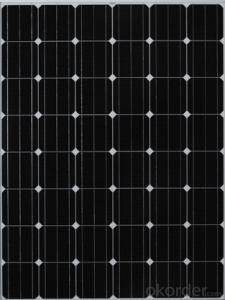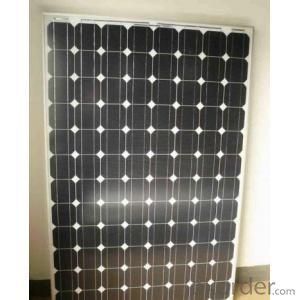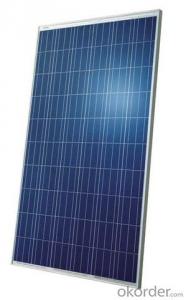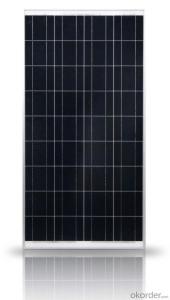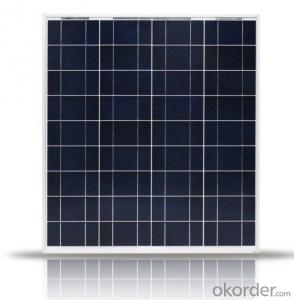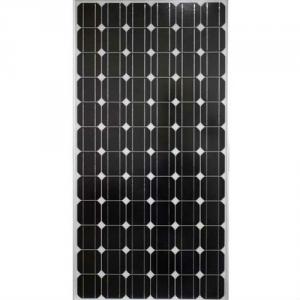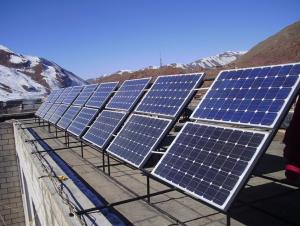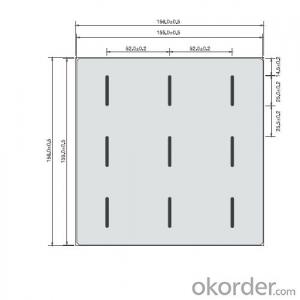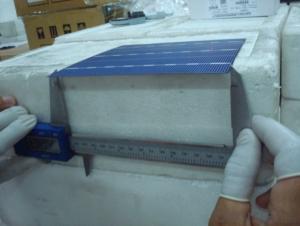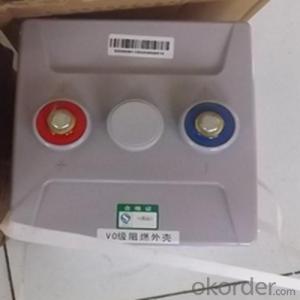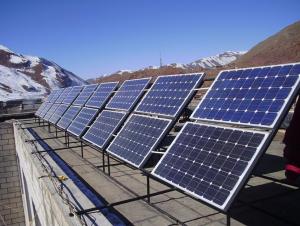PANDA 48 CELL WITH STABLE QUALITY HIGHER EFFCIENCY
- Loading Port:
- Tianjin
- Payment Terms:
- TT OR LC
- Min Order Qty:
- 1000 watt
- Supply Capability:
- 500 watt/month
OKorder Service Pledge
OKorder Financial Service
You Might Also Like
overview
PANDA 48 Panel CE TUV UL CERTIFICATEthis is a kit using for factory and storge field. this product is a higer output version with stable power and we gurantee you for 20years.
suggestied application
home lighting business lighting,
Garden lighting, pavement lighting
Farmer household lighting
Decorative water pump
Traffic signal lighting
industry area
business area
Solar Power Plant, Solar House
characteristic
convenient and swift
the higest effcient moudles in the world.
3.parameters:
Dimensions
1330 mm / 990 mm / 40 mm
YL225C-24b, 225 W
YL220C-24b, 220 W
YL215C-24b, 215 W
YL210C-24b, 210 W
YL205C-24b, 205 W
feather product
The modules are made of Monocrystalline or Polycrystalline Silicon cell.
Materials and color of the solar panel frame: Clear anodized aluminum alloy type 6063T5 Universal frame; Silver-white color;
The output connection gathers the coupling: Selects conforms to the IEC-612615; 2005, class II, IEC61730 international standard; Airtight waterproofing binding clamp;
Module seal structure: The surface is thick, the high diaphanous rate armored glass with solar cell board special-purpose 3.2mm becomes after the high temperature lamination craft. The back selects has waterproof and anti- aged performance fine TPT materials. The entire block battery board has, the waterproofing, the anti- aging airtight and so on the fine performance;
Power tolerance: +/-3%
The module bears the outside striking potential [V]: 1000V/1min
Working temperature: -40°C~+85°C
Service life [year]: It can be used more than 25 years under the environment of without acid, alkali and so on .
Packing
packed in international standard cartons(according to the requirements of customers ) for solar panels
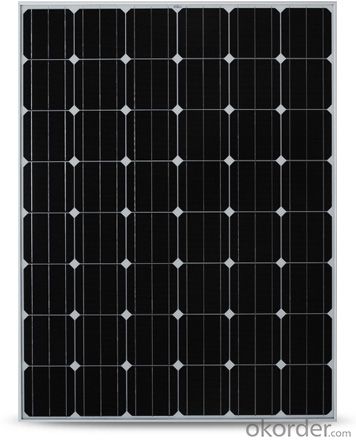
- Q:What is the accurate explanation for the sun solar cell power system? How does it work?
- The sun solar cell power system is actually working better than the other ways, because the quality guarantee period of crystalline silicon solar cells is 15 years, and the service life is more than 25 years.
- Q:What is the impact of shadows on solar cell performance?
- Shadows have a negative impact on solar cell performance as they reduce the amount of sunlight reaching the cells, thereby decreasing their efficiency in converting sunlight into electricity. Shadows can create hotspots on the cells, leading to potential damage and reduced lifespan. It is crucial to ensure that solar panels are installed in areas with minimal shading to maximize their performance and energy generation.
- Q:Where can I get the most accurate information about solar cells?
- A authorized science book talking about solar cells could be a good reference.
- Q:How do solar cells handle power fluctuations?
- Solar cells handle power fluctuations through a process called maximum power point tracking (MPPT), which optimizes the output power of the cell. MPPT algorithms continuously monitor the voltage and current of the solar cell and adjust the load resistance to ensure that the cell operates at its maximum power point, even in the presence of fluctuations in solar irradiance or temperature. This allows solar cells to efficiently convert sunlight into electricity and adapt to changing environmental conditions.
- Q:What is the effect of shading on solar cell performance?
- Shading has a significant negative effect on solar cell performance as it reduces the amount of sunlight reaching the cell, leading to decreased energy production. Even a small shaded area can cause a significant drop in efficiency, as solar cells are interconnected and operate in series. The shaded portion acts as a barrier, limiting the flow of current and reducing overall power output. Therefore, it is crucial to minimize shading to maximize the performance and efficiency of solar cells.
- Q:What is the impact of solar cells on reducing energy waste?
- Solar cells have a significant impact on reducing energy waste as they harness clean and renewable energy from the sun, thus reducing the need for fossil fuels. By converting sunlight into electricity, solar cells provide a sustainable and environmentally friendly alternative, reducing greenhouse gas emissions and dependence on non-renewable energy sources. This helps combat climate change and promotes a more efficient use of energy, ultimately decreasing energy waste.
- Q:What is the impact of wind on solar cell efficiency?
- The impact of wind on solar cell efficiency is generally minimal. While wind can cause slight vibrations or movements in solar panels, it does not significantly affect the overall efficiency of the cells. The main factors that influence solar cell efficiency are the angle and orientation of the panels towards the sun, as well as the amount of sunlight received.
- Q:Can solar cells be used in sports stadiums?
- Yes, solar cells can be used in sports stadiums. They can be installed on the roofs or facades of stadiums to generate renewable energy, reducing the reliance on traditional sources of electricity. This can help lower operating costs and reduce a stadium's carbon footprint. Additionally, solar cells can provide shade in outdoor stadiums, enhancing the spectator experience.
- Q:What are the safety considerations for installing solar cells?
- Some safety considerations for installing solar cells include ensuring proper grounding and bonding to prevent electrical shock hazards, following manufacturer's guidelines for installation to prevent fire hazards, and using personal protective equipment when working at heights or handling equipment to prevent falls or injuries. Additionally, it is important to be aware of potential electrical and fire hazards during installation and maintenance, and to have a plan in place for emergency response.
- Q:What is the impact of algae growth on solar cell performance?
- The impact of algae growth on solar cell performance is generally negative. Algae growth on the surface of solar cells can reduce their efficiency by blocking sunlight and causing shading. This reduces the amount of light that reaches the solar cells, thereby reducing their power output. Additionally, algae can also produce a biofilm that affects the surface properties of the solar cells, leading to further degradation in performance over time. Therefore, it is important to regularly clean and maintain solar panels to minimize the negative effects of algae growth.
1. Manufacturer Overview |
|
|---|---|
| Location | |
| Year Established | |
| Annual Output Value | |
| Main Markets | |
| Company Certifications | |
2. Manufacturer Certificates |
|
|---|---|
| a) Certification Name | |
| Range | |
| Reference | |
| Validity Period | |
3. Manufacturer Capability |
|
|---|---|
| a)Trade Capacity | |
| Nearest Port | |
| Export Percentage | |
| No.of Employees in Trade Department | |
| Language Spoken: | |
| b)Factory Information | |
| Factory Size: | |
| No. of Production Lines | |
| Contract Manufacturing | |
| Product Price Range | |
Send your message to us
PANDA 48 CELL WITH STABLE QUALITY HIGHER EFFCIENCY
- Loading Port:
- Tianjin
- Payment Terms:
- TT OR LC
- Min Order Qty:
- 1000 watt
- Supply Capability:
- 500 watt/month
OKorder Service Pledge
OKorder Financial Service
Similar products
New products
Hot products
Related keywords
